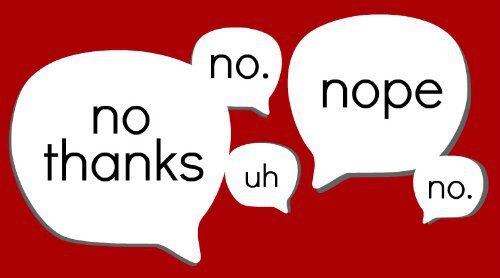“What we’ve got here is failure to communicate. ”This oft-quoted line from Cool Hand Luke can make a huge difference to your company’s future success, if you dig for the issue causing a deal to die. Is it a product development, marketing or sales methodology? What’s the best way to find out?
There are a number of ways prospects can elude a buying decision and politely shut a deal down: “We’ve decided that we’re happy with our current supplier. Your products seem to be the same as our current supplier. Your price is too high. We’re not ready to pull the trigger.”
How does your company respond? Do salespeople sheepishly offer to check back later and pray for the prospect’s dissatisfaction? Do they plead with management to lower the price to win the deal? Or when the deal’s dead, does the story end?
None of these options help you find out why the prospect bowed out. In fact, most companies miss a golden opportunity to learn from an unsuccessful prospect engagement where the source of failure might be and subsequently corrected for fostering greater success.
If you want to know, just ask
The best way to find out is pretty obvious—just ask. Are companies embarrassed about calling the prospect? Or maybe they’re afraid of what they might find out—like bad product, bad reputation, bad marketing, bad salesperson? Ignorance may be bliss, but it won’t help companies do more business.
There is one valid fear, and it’s that they may not get honest answers that will help them. Since in general people want to be nice, they shy away from negative remarks about anything or anyone related to the caller. This is where an experienced third party’s help with a lost-deal audit could make a real difference in pulling out candid feedback.
Product, positioning, pitch
Lost-deal audits should be structured around three main areas: the product or service, its positioning and messaging, and the sales method. Each of these areas offers an opportunity to distinguish itself from competitors. Questions must be carefully worded to:
- Unearth prospect’s buying criteria that explains why they are “happy” with their current supplier
- Learn about the differentiators that would motivate prospects to explore alternative solutions
- Delve into the prospect’s focus on price
- Discover prospect’s unmet needs
The art of the audit
While it is critical to craft questions for each prospect from the salesperson’s recall and notes, there’s an art to delivering them. While it may appear fairly straightforward to establish a role as an impartial information gatherer, the researcher must also build rapport with the prospect. What’s more there’s a great amount of experience and finesse required to know when and how to pursue certain answers with additional, non-scripted questions to gain additional insights.
A skilled auditor helps your company improve product development, marketing, and sales efforts by delivering information used to:
- Analyze key competitors to understand why you lose deals to them
- Develop true differentiators that outsell competitors
- Create compelling positioning and messages that turn others’ happy clients into your receptive buyers
Don’t let a “failure to communicate” on any level go unchecked. Learn what’s limiting your results. And let us know if we can get you started.

